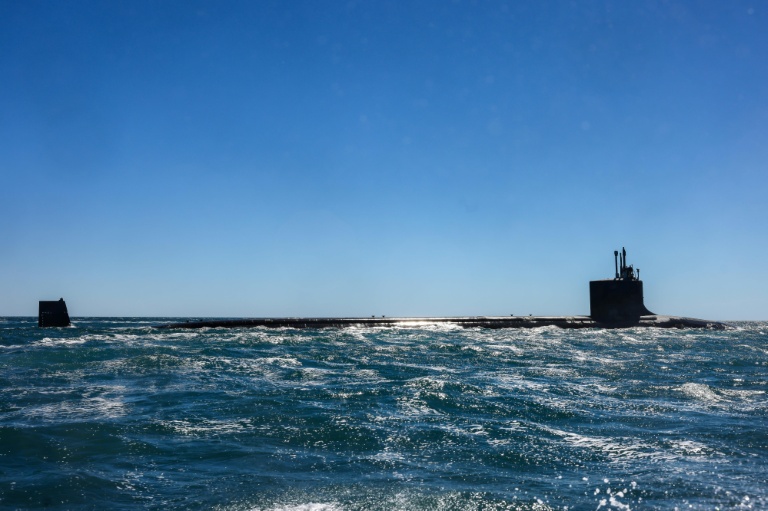World
Australia Urged to Adopt Unconventional Deterrence Against China, Russia

Australia is being urged to adopt an “unconventional deterrence” strategy in response to growing threats from China and Russia. A report released by the Australian Strategic Policy Institute (ASPI) on Wednesday emphasizes the need for innovative approaches in national defense, especially as the country seeks to bridge significant gaps in its military capabilities.
Under the AUKUS pact with the United States and the United Kingdom, Australia plans to acquire at least three Virginia-class submarines over the next 15 years, with intentions to eventually produce its own submarines. Despite this strategic move, ASPI warns that Australia faces an immediate vulnerability in its defenses. The report states, “Australia’s traditional reliance upon ‘great and powerful friends’ and extended nuclear deterrence now seems no longer assured.”
The ASPI report highlights lessons from historical guerrilla warfare, citing the Chechen insurgency against Russia in the 1990s as an example. Smaller forces, it argues, can inflict significant damage on larger adversaries through innovative strategies. The authors assert that “history demonstrates that innovative concepts and asymmetric capabilities can achieve deterrent effects ahead of and during conflict.”
Australia’s current deterrence concepts do not adequately address the competitive strategies employed by autocratic regimes such as China, North Korea, and Iran. ASPI points to China’s increasing use of “grey-zone” tactics, which include cyberwarfare and subversion that do not officially qualify as acts of war. These tactics highlight the need for Australia to implement a more agile and responsive defense policy.
The report also references former Singaporean leader Lee Kuan Yew’s description of Singapore as a “poisonous shrimp,” suggesting that smaller nations can adopt effective strategies to deter larger powers. Additionally, it points to the “porcupine” strategies used by Switzerland and several Baltic states as models for Australia.
ASPI advocates for the establishment of a National Security Adviser with comprehensive powers to oversee intelligence agencies and coordinate national defense initiatives. It also calls for reforms in Australia’s spying and defense laws to facilitate these changes.
In response to these recommendations, Australia is pursuing a rapid military build-up aimed at strengthening its defenses, particularly against China, which is also its largest trading partner. The government plans to gradually increase defense spending to 2.4 percent of its gross domestic product, although this falls short of the 3.5 percent that the United States has called for.
The AUKUS submarine initiative alone could cost Australia up to $235 billion over the next 30 years. This substantial expenditure has sparked criticism and debate within the country, particularly regarding its implications for the national budget and economic priorities.
As Australia navigates these complex geopolitical dynamics, the push for an unconventional deterrence strategy underscores the urgency for rethinking traditional defense paradigms in an increasingly uncertain global landscape.
-

 Politics4 weeks ago
Politics4 weeks agoSecwepemc First Nation Seeks Aboriginal Title Over Kamloops Area
-

 World5 months ago
World5 months agoScientists Unearth Ancient Antarctic Ice to Unlock Climate Secrets
-

 Entertainment5 months ago
Entertainment5 months agoTrump and McCormick to Announce $70 Billion Energy Investments
-

 Science5 months ago
Science5 months agoFour Astronauts Return to Earth After International Space Station Mission
-

 Lifestyle5 months ago
Lifestyle5 months agoTransLink Launches Food Truck Program to Boost Revenue in Vancouver
-

 Technology3 months ago
Technology3 months agoApple Notes Enhances Functionality with Markdown Support in macOS 26
-

 Lifestyle3 months ago
Lifestyle3 months agoManitoba’s Burger Champion Shines Again Amid Dining Innovations
-

 Top Stories2 months ago
Top Stories2 months agoUrgent Update: Fatal Crash on Highway 99 Claims Life of Pitt Meadows Man
-

 Politics4 months ago
Politics4 months agoUkrainian Tennis Star Elina Svitolina Faces Death Threats Online
-

 Sports5 months ago
Sports5 months agoSearch Underway for Missing Hunter Amid Hokkaido Bear Emergency
-

 Politics5 months ago
Politics5 months agoCarney Engages First Nations Leaders at Development Law Summit
-

 Technology5 months ago
Technology5 months agoFrosthaven Launches Early Access on July 31, 2025



















